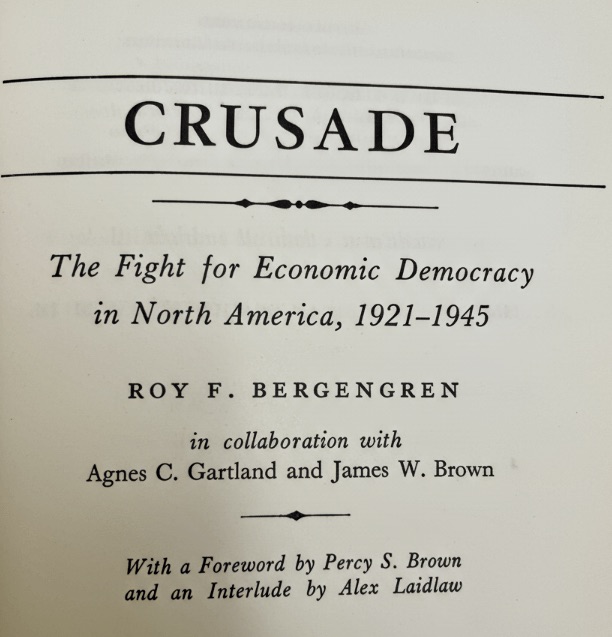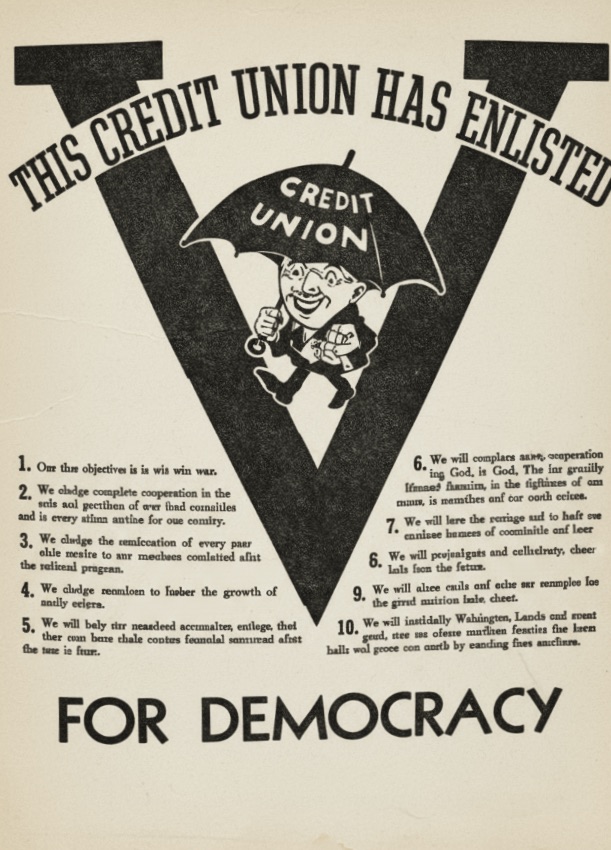On a visit to Seattle a week ago, I found two credit union traces. The first was a street level branch for BECU near the Pike Street Market on 1st Avenue.
The second was a listing of books referencing credit unions from the business and industrial section of the Seattle Public Library. One of the books was The Fight for Economic Democracyin North America 1921-1945 by Roy Bergengren.
Published in 1952 by this co-founder (with Edward Filene) of America’s credit union system, the book tells the founding story describing those efforts as a crusade for economic demcracy.
As the title suggests, democracy is a key theme for this post WW II cooperative history. It is more than a movement. Credit unions are integral to America’s democratic aspirations for equal opportunity.
A Statement of Principles
Bergengren included an example of credit union support for war bond savings drives that proclaims this larger purpose for the cooperative system. Here is the V for victory poster with the credit union logo and the statements of purpose.
Here are the ten principles retyped for readability. Some are war related, but others much broader for credit union’s role with members and their communities (emphasis added).
THIS CREDIT UNION HAS ENLISTED FOR DEMOCRACY
- Our first objective is to win the war.
- We will encourage and promote thrift and the saving of money as a basic personal war service.
- We will encourage and promote regular saving by our members and families for security and the future.
- We will make loans to foster the growth of stability in our community.
- We will urge members to buy war savings stamps and bonds regularly.
- We will keep faith with the requirements of the community, state and nation in all our practices and policies.
- We will supply our members immediately savings that otherwise might go into channels that would drain the war effort.
- We will keep our members mindful that saving, with wise use of the resulting credit, will help shorten the war.
- We will keep the records of our progress clear, complete and available.
10.We will maintain the existing democratic character of our credit union and apply the lessons we are learning daily to our postwar democracy.
Today’s Credit Unions
Seventy-five years on, are credit unions living up to the legacy described by Bergengren and passed forward to today’s member-owners? Is democratic practice described in this statement still a guiding principle? Most critically, if not, what governance process has replaced it?
As demonstrated this past weekend, many believe America’s political future is at risk. Can credit unions in their cooperative way show their commitment to maintain the existing democratic character of our credit union and apply the lessons we are learning daily to our democracy?


